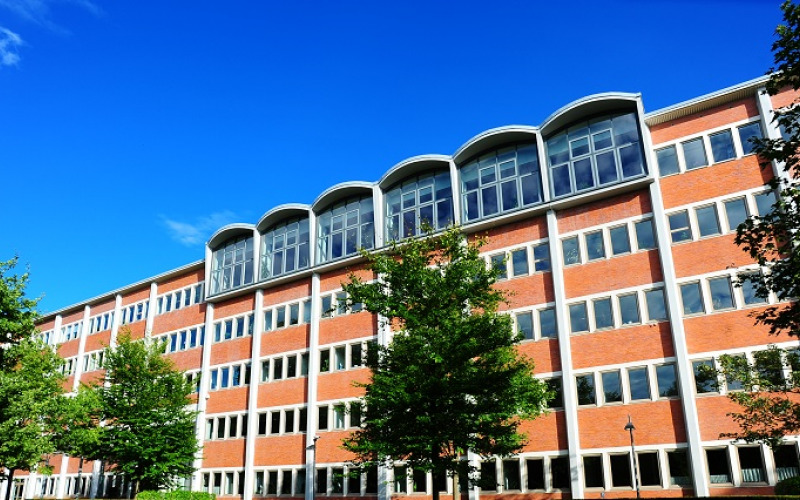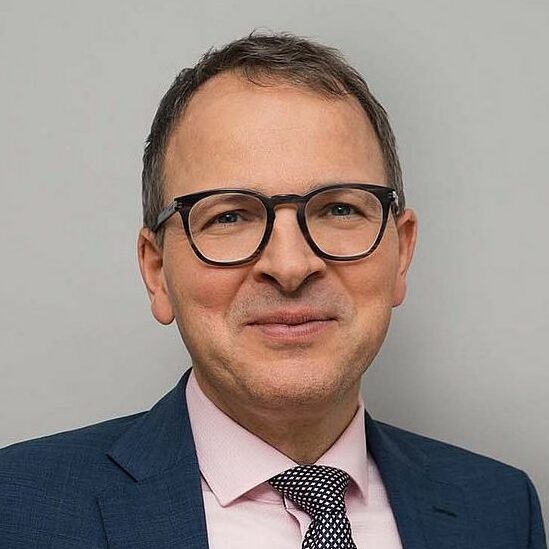“Most of the designated legally qualified [UPC] judges are very experienced and have a reputation of not shying away from shaping the law. Many of them have authored important milestone decisions in continental European patent litigation.”

UPC Munich – Central Division
On February 17, 2023, Germany ratified the Agreement on the Unified Patent Court. This means that the Unified Patent Court (UPC) will definitely go live on June 1, 2023. Thus, it’s time to get one’s ducks in a row and to prepare for this new court system, which provides for a new pan European injunction in patent matters. In order to facilitate such preparation, we will be providing a series of five articles over the coming months until the system starts that will deal with the most important aspects of the UPC.
Issue 1: The Judges
It is common ground that good lawyers know the law and great lawyers know the judges. But: who are the judges that were appointed and are now designated judges of the UPC?
The UPC can be characterized as a typical European compromise. It comprises a Court of First Instance and a Court of Appeal. Whereas the Court of Appeal has one single-seat, the Court of First Instance is composed by one central division with locations in Paris (seat) and Munich as well as 13 local/regional divisions which are scattered all over the currently 17 UPC Member States (for more information, please see The Unified Patent Court | Unified Patent Court (unified-patent-court.org).
As of today, there are 85 UPC judges, whereby 34 are legally qualified judges and 51 are technically qualified judges. Almost all of the legally qualified, and even all technically qualified judges, will be part-time when the new system enters into effect. This situation is due to the fact that the UPC is a self-financed system (much like the European Patent Office), so that budget constraints necessitated a part-time approach. However, if the system becomes a success story (which most European stakeholders expect), then a quick “upgrade” from a part-time to a full-time UPC assignment can be expected for these currently designated UPC-judges. This likely scenario entails a significant brain drain for national continental European patent litigation. Consequently, new and (very likely) less experienced national judges have to be appointed for the national court systems. Thus, national venues that were very predictable in the past, might become less predictable in the future (an important factor, not only for designing global enforcement, but also for designing global defense strategies). In this respect, it is also noteworthy that further new UPC judges can be added to the current list of UPC judges at any time. If and when such additions are made, it will again be dependent on the number of cases that are filed with the UPC, in particular in the early months after the new system enters into effect.
If one studies the roster of the 34 legally qualified UPC judges the following thoughts immediately come to mind: The Administrative Committee that selected these judges did its homework and appointed the cream of the crop from the pool of national patent litigation trial court judges who had submitted their application (which, rumor has it, almost all of the national patent litigation trial court judges did; one of the reasons might have been that the remuneration is much better at the UPC than at the national level).
The choice of these “best in class” judges is the bedrock for the success of the new system. The 51 technically qualified judges were recruited mostly from private practice patent attorneys. This is due to the fact that most UPC Member States simply do not have professional technically qualified judges. The German Federal Patents Court is the exception to the rule in this respect. Five technical fields of expertise are covered by the technically qualified judges: biotech, chemistry/pharma, electricity, mechanical engineering and physics.
Most of the designated legally qualified judges are very experienced and have a reputation of not shying away from shaping the law. Many of them have authored important milestone decisions in continental European patent litigation. If one were to summarize these decisions, it is fair to assume that a patentee-friendly handling of patent cases can be expected by the UPC. This assumption is corroborated if one studies the Agreement on the Unified Patent Court (UPCA) and the Rules of Procedure (ROP). There is hardly any provision that clearly plays into the hand of defendants. In fact, if the UPCA and the ROP are applied verbatim, they provide a real head start for patentees. This is due to the fact that a rocket docket timeline was incorporated in the ROP with a time schedule of one year from filing the complaint to trial. It is noteworthy that the UPC will have to decide both infringement and invalidity within this time frame.
Names to Know
At the Court of Appeal, two judges in particular deserve special attention, namely, Dr. Klaus Grabinski (Germany) and Rian Kalden (Netherlands), who are both spearheading the two panels of the Court of Appeal. Judge Grabinski was also appointed President of the court. Just like the U.S. Court of Appeals for the Federal Circuit, the UPC Court of Appeal is entrusted with the task of ensuring a consistent application of the new UPC case law. Judge Grabinski is a former presiding judge of the Düsseldorf Regional Court (patent chamber) and the Düsseldorf Court of Appeal (patent chamber). The Regional Court in Düsseldorf is Europe’s most important patent trial court and known for applying a broad function-oriented claim construction. In light of the fact that German and Dutch case law are to some extent similar in this regard, it is certainly not far-fetched to assume that the UPC will entertain a broad functional claim construction, too. Judge Grabinski currently holds the position as Vice Chair of the German Federal Supreme Court (patent senate). His experience in patent litigation matters is unparalleled. He is a real UPC enthusiast and was involved in the UPC system from the early days on. Judge Kalden is a Senior Judge at the Court of Appeals in the The Hague. She is known for taking a patentee-friendly stance in SEP matters. Ms. Kalden has authored a milestone decision concerning the (un-)willingness of implementers in taking a license on FRAND terms (ECLI:NL:GHDHA:2019:3535), which was soon followed by the German Federal Supreme Court (case no. KZR 35/17; KZR 36/17). Thus, it would not come as a surprise if the UPC were also to follow a rather strict approach on the “willingness” requirement.
The local divisions in Düsseldorf, Hamburg, Mannheim, Milan, Munich, Paris and the Hague have a unique penal composition, since two out of the three judges on the panel are local judges stemming from the state hosting the local division. All other local divisions will only only have one local judge on the panel. Consequently, one can expect that the local divisions in Germany, France, Italy and the Netherlands will, at least in the first phase of the UPC system, tend to create case law which mirrors their own national case law. Forum shopping, which is intrinsically linked to the predictability of the outcome of a case, will also play an important role. If one analyzes the individual trial court judges at these local divisions, the following names will certainly play an important role: Judge Zigann and Judge Pichlmaier from the Munich local division, who are well known for their generous approach in preliminary injunction matters and patentee-friendly case law in Standard Essential Patent (SEP) cases. The latter is certainly also true for the Mannheim local division, where two very experienced patent trial court judges, namely Judge Kircher and Judge Tochtermann, were assigned. For pharma matters, the Hamburg local division could become a hot spot, since Judge Klepsch, being distinguished by having studied both law and chemistry ,will be sitting on this panel. Thus, a unique expertise in pharma matters will be present at this local division.
The bottom line is that we will see a lot of competition among the local divisions. This competition is driven by the circumstance that the UPC judges are only appointed for a six-year term. Taking into account the above-mentioned fact that the UPC is a self-financed system, there is a structural incentive for the judges of the local divisions to attract cases, thereby ensuring the extension of their initial appointment.

![[IPWatchdog Logo]](https://ipwatchdog.com/wp-content/themes/IPWatchdog%20-%202023/assets/images/temp/logo-small@2x.png)

![[Advertisement]](https://ipwatchdog.com/wp-content/uploads/2024/04/UnitedLex-May-2-2024-sidebar-700x500-1.jpg)
![[Advertisement]](https://ipwatchdog.com/wp-content/uploads/2024/04/Artificial-Intelligence-2024-REPLAY-sidebar-700x500-corrected.jpg)
![[Advertisement]](https://ipwatchdog.com/wp-content/uploads/2024/04/Patent-Litigation-Masters-2024-sidebar-700x500-1.jpg)

![[Advertisement]](https://ipwatchdog.com/wp-content/uploads/2021/12/WEBINAR-336-x-280-px.png)
![[Advertisement]](https://ipwatchdog.com/wp-content/uploads/2021/12/2021-Patent-Practice-on-Demand-recorded-Feb-2021-336-x-280.jpg)
![[Advertisement]](https://ipwatchdog.com/wp-content/uploads/2021/12/Ad-4-The-Invent-Patent-System™.png)






Join the Discussion
3 comments so far.
Juney V Lennon
February 22, 2023 09:41 pmI hope the truth will finally come in time, so those who have been abused by the system, eg. Patent Infringement get their day in court.
Pro Say
February 21, 2023 08:28 pm“Most of the designated legally qualified [UPC] judges are very experienced and have a reputation of not shying away from shaping the law.”
It’s not the job of judges to shape (read: make it conform to their will) the law. That’s legislator’s purview.
Regardless of country. Regardless of jurisdiction.
Judges job is to apply the law.
No more. No less.
Something half the members of the CAFC refuse to do when it comes to ruling on what is and what is not eligible for patenting.
Loozap
February 21, 2023 03:57 pmSo we can trust their judgment